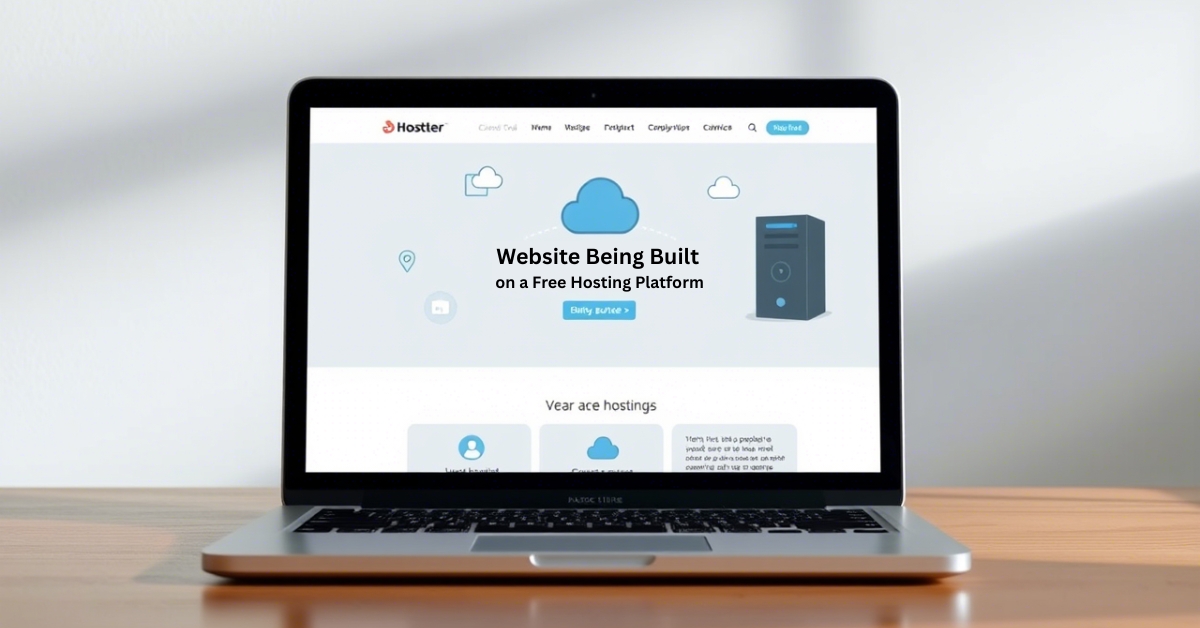Is Free Hosting Worth It? Pros & Cons Explained
Is Free Hosting Worth It? Pros and Cons
When it comes to building a website, one of the first decisions you’ll face is how to host it. And if you’re new to the online world, you might be thinking. “Is free hosting worth it?” It seems like a no-brainer—get a website up and running for free. But before you rush to sign up for the first free hosting service that pops up, let’s take a hard look at the pros and cons. Because spoiler alert: it’s not always as simple as it seems.
In this article, we’ll dive deep into free hosting—what it is, how it works, its benefits, and the drawbacks you need to consider. By the end, you’ll have a clear understanding of whether free hosting is the right choice for your needs. Let’s get into it.
What is Free Hosting?
Free hosting is a service provided by web hosting companies where you get to host your website for free. That means you don’t have to pay monthly or yearly fees, which sounds great, right? Well, it depends. While the idea of getting something for free is appealing, there are often trade-offs involved, especially when it comes to the quality and control of your website.
How Free Hosting Works
Free hosting services typically come with some limitations. In exchange for the free service, hosting companies often provide basic resources and features, with more advanced options available through premium plans. Here’s how it typically works:
i) Limited Storage and Bandwidth
Free hosting often limits the amount of storage space and bandwidth your website can use, which means that if your site grows too large or gets too much traffic, it might crash or slow down.
ii) No Custom Domain
Many free hosting providers offer a subdomain instead of a custom domain. For example, your website might appear as yourname.freehost.com rather than yourname.com, which can look unprofessional.
iii) Ads
Free hosting services often place ads on your website to cover the cost of providing the free service. This can be a deal-breaker if you want your site to look clean and professional.
Benefits of Free Hosting
If you’re running a small project or just getting started, free hosting can seem like an attractive option. Let’s break down some of the potential benefits.

i) It’s Free (Obviously)
The biggest draw of free hosting is, of course, that it’s free. For small projects, personal blogs, or experimental sites, this can be a great way to get started without any upfront investment.
ii) Easy to Set Up
Most free hosting providers offer simple, user-friendly setup processes. You don’t need to be tech-savvy to get your website online.
iii) Perfect for Testing Ideas
If you’re not sure whether your website or business idea will work, free hosting is an excellent way to test things out before committing to a paid plan. It’s low risk, and you can always upgrade later if your project takes off.
iv) No Long-Term Commitment
Free hosting often doesn’t require you to commit to any long-term contract, so if you’re starting and aren’t sure where you’ll end up, free hosting gives you the flexibility to change your mind at any time.
Limitations of Free Hosting
While the benefits are clear, free hosting comes with its own set of challenges that you need to consider. Here are some of the drawbacks.

i) Limited Features and Control
Free hosting providers typically offer limited resources, like restricted storage and bandwidth, and fewer customization options. This can be a huge barrier if your website grows and needs more advanced features.
ii) Unprofessional Appearance
Using a subdomain like yourname.freehost.com makes your site look less professional. If you’re serious about building a business or personal brand, a custom domain is essential for credibility.
iii) Ads on Your Website
Many free hosting providers insert their ads into your website to cover costs. This can be disruptive to your user experience and make your site look cluttered and unprofessional.
iv) Poor Customer Support
With free hosting, you often get minimal customer support. If something goes wrong, you may be left to figure things out on your own or rely on forums and FAQs.
v) Security Risks
Free hosting services might not offer the best security protocols, leaving your website vulnerable to hacking or other cyber threats. Without proper backups, you could lose your data at any time.
vi) Slow Speed and Downtime
Free hosting providers typically don’t guarantee uptime or performance. Your website might load slowly, and downtime could be a frequent issue, which can hurt your user experience and SEO rankings.
Practical Applications of Free Hosting
So, when is free hosting actually a good option? Here are a few scenarios where it can make sense.
i) Personal Blogs
If you’re writing for fun or sharing your thoughts, free hosting might work. You won’t need much storage or bandwidth, and the lack of a custom domain probably won’t matter.
ii) Portfolio Sites
If you’re just getting started as a freelancer or designer, a free hosting plan can be a way to showcase your work without paying upfront costs.
iii) Testing and Prototyping
When you have a new business idea or website concept, free hosting can serve as a temporary testing ground. You can figure out what works before committing to a paid plan.
Free Hosting vs Paid Hosting
Is it worth the upgrade? This is a common question for anyone who’s been using free hosting. Here’s how free hosting compares to paid hosting.

i) Performance
Paid hosting typically offers faster speeds, better uptime, and fewer interruptions. If your site is business-critical, it’s worth investing in a paid option to avoid disruptions.
ii) Customization
Paid hosting plans allow for more control over your website. You get to use your domain, install premium themes and plugins and optimize your site the way you want.
iii) Support
With paid hosting, you get 24/7 customer support, ensuring that any issues are resolved quickly. Free hosting often lacks this, leaving you to handle problems on your own.
Tips for Choosing the Right Free Hosting
If you’ve decided free hosting is your best option for now, here are a few tips to get the best experience.

i) Look for No Ads
Find providers that don’t force ads onto your site. There are several options available that let you host for free without the intrusive ads.
ii) Check Uptime and Speed
Research the free hosting provider’s uptime and speed reviews before signing up. Aim for a provider that guarantees at least 99% uptime.
iii) Consider the Future
Even if you’re starting with free hosting, plan for future growth. Choose a provider that lets you upgrade easily to paid plans when you’re ready.
Conclusion
So, is free hosting worth it? It all depends on your goals and how serious you are about your website. If you’re running a hobby blog or testing out a small idea, free hosting can be a good starting point. However, if you’re building a business or a site with long-term potential, you’ll likely need to upgrade to paid hosting to get the performance, features, and support you need.
Free hosting might seem like an easy option, but it’s not without its limitations. Understanding these trade-offs will help you make the best decision for your website’s future.
FAQs
Is free hosting good for beginners?
Yes, free hosting is great for beginners who want to learn about website creation without making any upfront investment. It’s a low-risk way to start.
Can I use free hosting for a business website?
It’s not recommended for business websites. Free hosting typically lacks the necessary features and professionalism needed for a business site to succeed.
Will free hosting affect my website’s SEO?
Yes, free hosting can hurt your SEO due to slower speeds, potential downtime, and limited control over technical aspects like optimization and backlinks.
What’s the best free hosting provider?
Some of the best free hosting providers include WordPress.com, Wix and Weebly. Be sure to check for the features you need, like no ads and reliable performance.







